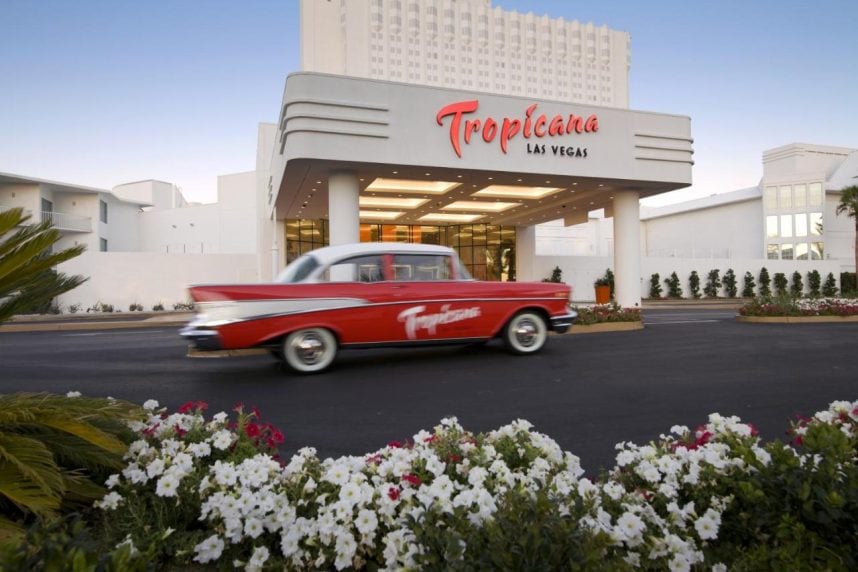Gaming and Leisure Properties (NASDAQ:GLPI) was affirmed at a credit rating of “BBB-” — the lowest investment grade — with a “stable” outlook by Fitch Ratings.

The ratings agency noted the casino landlord’s credit grade is hindered by gaming real estate investment trusts (REITs) having weaker contingent liquidity profiles than other commercial REITs, but GLPI’s leverage ratio is within the 4.5x to 5.5x range of comparably rated real estate firms.
Fitch expects GLPI to operate through the cycle with leverage at or below 5.5x, which is appropriate for a ‘BBB-‘ rated U.S. REIT with the company’s asset profile,” according to the research firm. “GLPI’s ratings have some tolerance for leverage to temporarily exceed 5.5x for larger acquisitions; however, Fitch would expect the company to return to under 5.5x within 12-18 months of an acquisition through debt repayment from equity sales and retained cash flows.”
Penn Entertainment is GLPI’s largest tenant and other clients include Bally’s, Boyd Gaming, Caesars Entertainment and Cordish Cos.
Gaming and Leisure Client Stability
Compared to rival VICI Properties (NYSE: VICI), Gaming and Leisure’s Las Vegas exposure, including the Strip, is low.
However, the REIT is indirectly exposed to dynamics in the U.S. casino center because clients such as Bally’s, Boyd Gaming and Caesars Entertainment have significant footprints there. That trio combined for 29% of GLPI’s first-quarter rental income while Penn, which operates the M Resort in Henderson Nevada, and Cordish combined for 70%.
“The master leases have long initial terms and cross-default provisions, providing stability and visibility to GLPI’s cash flows, and help insulate the company from individual asset and/or market-level underperformance. Each publicly traded major tenant accessed the capital markets throughout the pandemic and has healthy liquidity,” added Fitch.
The ratings agency noted GLPI’s tenants, including Penn, have weaker credit profiles than the REIT itself, but those concerns are mitigated by long-term leases and default provisions featured in those contracts.
Gaming and Leisure Has Perks for Investors
Since being spun off from Penn in 2013, GLPI has been a steady dividend grower and it even paid a special dividend in late 2021. The shares closed today with a payout yield 5.82%.
Additionally, the REIT has a reputation for savvy deal-making, often scooping up the property assets of regional casinos at attractive prices. Gaming and Leisure itself has also been mentioned as a takeover target, but for now, that’s just old speculation. Broadly speaking, GLPI’s balance sheet is steady and the company has avenues to raise cash should it need to.
“GLPI’s portfolio is entirely unencumbered, providing the company with ample capacity to borrow secured debt in a stress scenario under the tests in its senior unsecured bond and bank covenants,” concluded Fitch. “The company has no secured debt and unsecured assets / net unsecured debt (UA/UD) is above 2.0x, giving the ample company contingent liquidity. The company’s assets are predominantly regional, considered less cyclical than Las Vegas strip assets.”
The post Gaming and Leisure Properties Has ‘Stable,’ Says Fitch appeared first on Casino.org.




